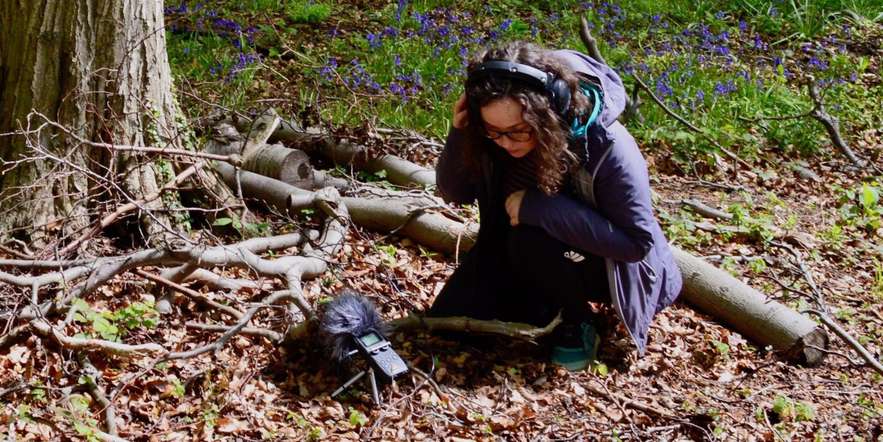
Sound UK’s artist development programme, Sound Generator, supports early career artists and the work they present.
In this series of Spotlight interviews, we find out more about the artists on our 2023 artist development programme, delve deeper into their Sound Generator project and discover what the process has meant to them.
This week, we talk to Gwen Siôn.
Gwen Siôn is an award-winning composer, producer and multidisciplinary artist working with sound, sculpture, video and installation. She creates multi-instrumental, vocal and electronic compositions, and her own hand-built instruments and electronic sound devices by recycling found objects and natural materials. Gwen is interested in the relationship between sound and environment, ecology, mythology, ritual and synaesthetic crossover.
_large.jpg)
Image: Gwen Sion AKA catHead playing a live electronic music set with her experimental handmade instruments. Photo by Maxine Monaghan.
Please tell us about your Sound Generator project. What is it and where did the initial inspiration come from?
My aim is to create an experimental audiovisual project for concert venues that explores connections between music, landscape, tradition and ritual. I want to find ways of combining experimental electronic music, contemporary orchestral composition, choral composition (specifically informed by the North Wales working class tradition of Slate Quarrymen’s choirs) and moving image to create an immersive live performance piece.
The project is called Llwch a Llechi which translates as Dust and Slate. I am researching Celtic folklore motifs, socio-political histories and the important cultural relationship which exists in this area between music (especially quarrymen’s choirs) and landscape, and its deeper roots in Celtic oral tradition but by bringing this into a current space through experimental electronic music and contemporary composition.
I am interested in the juxtaposition of old and new, preserving culture by exploring new ways of expressing it and presenting it to new audiences in spaces where it has not traditionally existed. The quarrymen’s choirs traditionally existed in the workplace, and concert halls of orchestral music have often been spaces harder to access for working class people from rural areas, so I’m interested in connecting these things, especially through experimental electronic music and contemporary composition practices.
The initial inspiration for the project came from my interest in landscape and folklore. My practice is centred around the relationship between sound and environment and finding ways of interpreting landscape in musical terms. I make handmade instruments using found natural materials (including slate) and often use non-traditional composition methods, experimenting with ways of reading the landscape as a score.
Image: One of Gwen's handmade electric slate harps.
I’m really interested in using composition to explore the cultural, ecological and socio-political significance of a particular place. Being a first-language Welsh speaker and having grown up in a post-industrial working class slate quarrying town in North Wales I feel very connected to this landscape of high mountain ranges, rugged coastlines and slate slag heaps and the socio-political and cultural histories which are bound to that environment.
Image: Landscape photograph of North Wales - dry stone wall, mountain.
How has your project developed during the programme so far? And what have you learnt?
My ideas have developed so much since the start of the programme. Having a focussed period of supported Research and Development (R&D) has allowed me to experiment, create and research and as a result I feel like I’ve learnt a huge amount about the choir culture of North Wales quarries and Celtic folk traditions in relation to experimental electronic music.
I’ve been able to explore ways of incorporating orchestral instrumentation into the work and to develop skills in both choral and contemporary orchestral composition and arrangement which are relatively new ways of working for me so it’s been a really enriching time so far and I feel like I’ve learnt a lot.
What has this opportunity meant to you?
This opportunity has meant a great deal to me – it’s given me the time and resources necessary to research and develop my ideas and take tangible steps towards realising my most ambitious project to date, which would simply not be possible without support.
The project involves lots of new ways of working for me, so I really needed an extended period of development time in order to learn new technical skills and extensively research the subject matter.
Having access to Sound UK’s networks and the opportunity to connect with incredible artists who are experts in their fields and to receive targeted mentoring from them to support the project has been both inspiring and transformational for my practice and has meant this project has been able to develop in ways which I couldn’t have imagined initially.
This support has enabled me to develop practical skills in orchestral composition and choral composition which has made realising the project possible. The Sound Generator programme has also given me the opportunity to connect with larger venue partners who will potentially produce the fully realised live project in its final stages, which is really exciting!
Image: Gwen's slate harps.
Has it helped you to develop your creative practice? If so, how?
This programme has felt like a significant turning point in my career as a composer and has really helped develop both my creative and professional practice. It has enabled me to further develop scoring and notation skills and develop new technical and creative skills in orchestral and choral composition using both software and real players and singers.
I’ve also been able to purchase professional scoring and orchestral software, which I wouldn’t have been able to afford otherwise. Allowing me to explore new ways of working and giving me the opportunity to develop these new skills has opened up a world of creative possibilities.
Sound UK has also given me access to support and resources, which has meant I could think about my work on a much bigger scale. This has been really refreshing as it’s allowed me to be more ambitious with my ideas.
Who are your key artistic influences for this project?
I haven’t thought about any specific artists as key influences for this project but what I think has really been a huge influence on the project is looking back at the kind of songs these slate quarrying choirs would have been singing when they were first formed and how that connects back to a much older Celtic oral tradition.
I’ve been looking a lot at Welsh folk music and the kind of traditional folk songs these choirs might have sung and also at broader Celtic folk motifs and melodic motifs in Celtic music, which I feel will really inform the project as I’m trying to find ways of exploring ritual and tradition through an experimental contemporary lens.
Image: Quarrymen gather in a 'caban' - a small hut where workers would take their break and gather to sing, recite poetry, make tools, carve designs, debate politics and tell stories, a creative refuge where landscape, craft and music met to provide a moment of sanctuary from the extreme dangers faced as part of daily working life. Photo credit: Meirionnydd Archives, Gwynedd Archives Service 2023.
I want to consider how folk tradition can exist today, how we can celebrate cultural identity and history by bringing it to a contemporary space. How does culture survive and thrive – through modes of translation, by moving with the times, by constantly evolving and through people experimenting with new ways of experiencing it and presenting it to different audiences.
As a composer who works primarily in experimental electronic music, I am really excited about working in a different way for this project, exploring other forms of music and trying to combine elements of traditional Celtic music, choral composition and contemporary orchestral composition with experimental electronic music.
What have you been listening to recently? Any new music recommendations?
The new Loraine James album is absolutely amazing, I’ve really been enjoying it so would definitely recommend that.
What are your hopes for this project? How do you see it developing beyond this initial 6-month award?
The project will premiere at a festival in Cardiff in Autumn 2024. I am so grateful to the festival for their interest in my project idea and faith in me as a composer - having a partner now on board has really helped me see a way of realising the project in its final stages of live performance and has really given me the drive to develop my creative ideas further. My long-term ambition for this project after it premieres next year is for it to hopefully tour concert venues across the UK.
Image: Gwen Sion AKA catHead performing live with her electronic instruments at Ara Deg festival 2023. Photo credit: Beverley Creddock Unit Pictures.
We look forward to sharing more details about Gwen Siôn's Sound Generator project as it develops. Visit Gwen's website to find out more about her work.
Sound Generator is Sound UK's artist research and development (R&D) programme that supports early-career artists and seeds the development of an ambitious new project. Following an open call, a panel of judges including leading figures across contemporary music, chose six emerging artists working at the forefront of sound and music.
Sound Generator supports artists in the first 5-10 years of their career. Over the six month programme, they each receive mentoring by a range of professionals to develop an innovative project ready for showcasing to the industry.
To be the first to hear about our latest projects, news and read our latest artist interviews, join Sound UK's mailing list and follow us on social media.
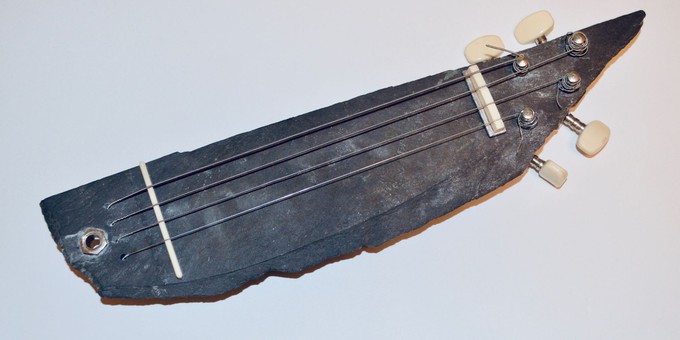
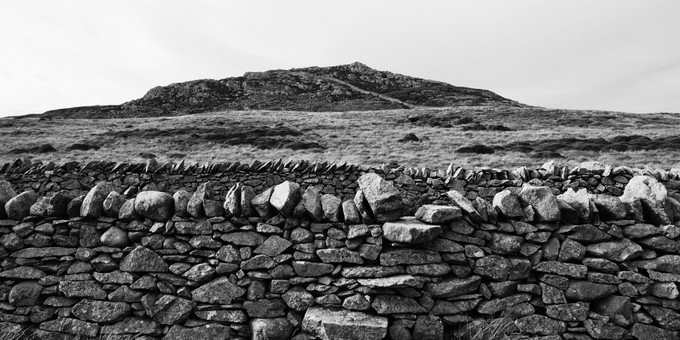
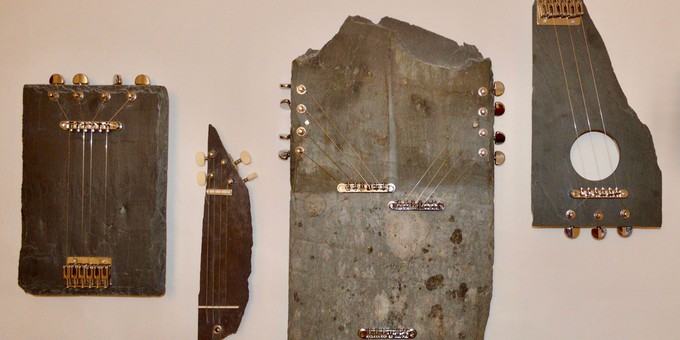
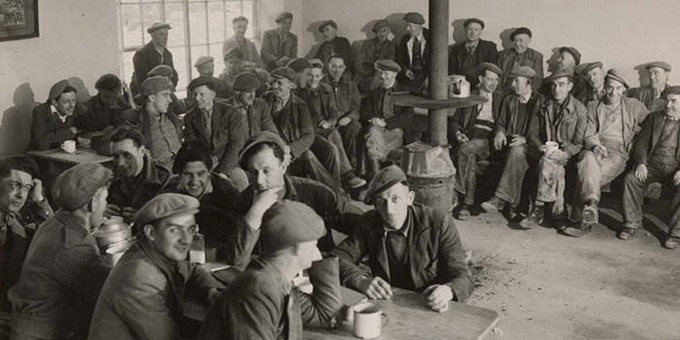
_large.jpg)
